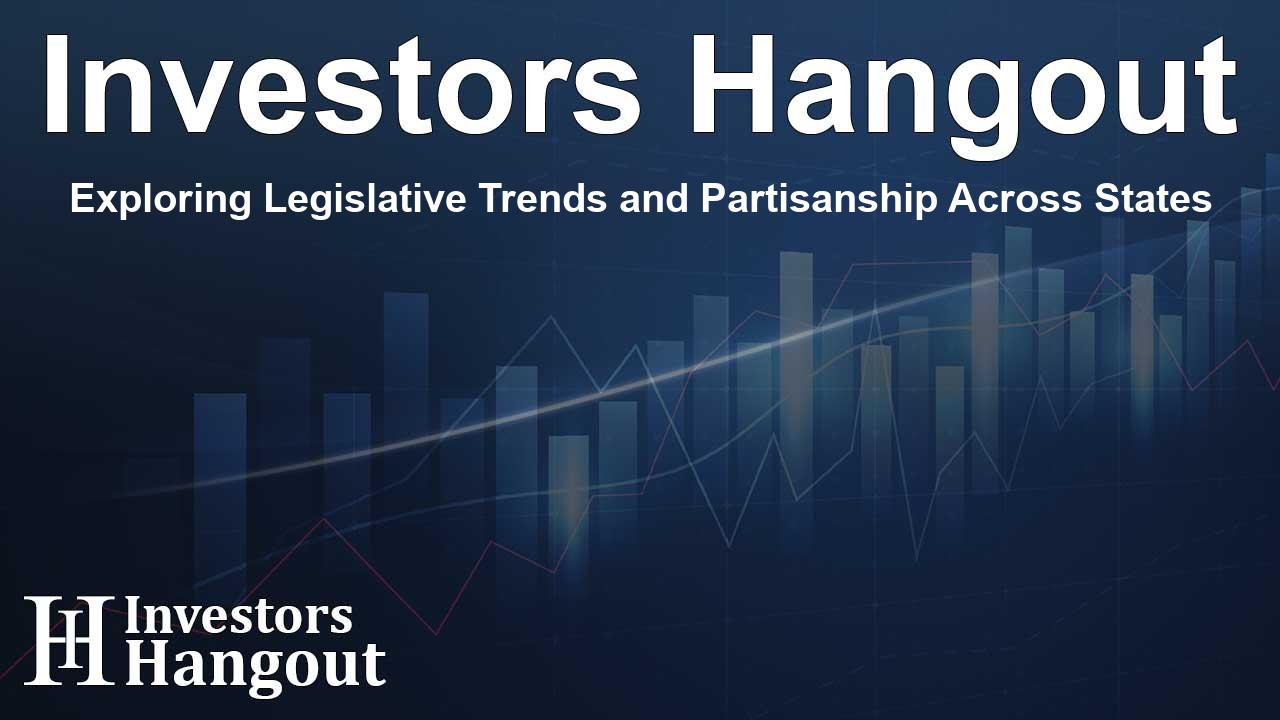Exploring Legislative Trends and Partisanship Across States

Exploring Legislative Trends and Partisanship
Recently, Ballotpedia and BillTrack50 teamed up to produce a detailed report that examines important trends in state legislatures and the role of partisanship over the years. This thorough analysis encompasses an impressive dataset of 243,529 bills passed across all 50 states, providing valuable insights into the intricacies of state politics and legislation.
The State Legislative Decade Report
The collaborative project, titled The State Legislative Decade, highlights the evolution of state legislatures in terms of both productivity and bill sponsorship. The findings not only showcase the sheer volume of legislation passed but also reveal the complex shifts in legislative behavior observed across different state governments. The report demonstrates how partisanship has shaped the legislative landscape from 2011 to the present.
Key Findings on Legislative Dynamics
One of the most significant insights from the report is the considerable effect of the COVID-19 pandemic on legislative activities. The data shows that in 2020, legislative sessions saw a 19.5% drop in the number of bills enacted compared to previous years. This decline reflects the broader challenges that governments faced during the pandemic.
Examining Partisan Dynamics
Additionally, the report notes a remarkable 12.9% increase in the share of Republican-sponsored bills enacted in states under Republican control from 2015 to 2023. This trend highlights how party dominance can influence legislative outcomes, particularly in determining which legislation is passed by state governments.
A Closer Look at Legislative Productivity
When analyzing the overall productivity of state legislatures, the data revealed that 56.7% of all legislation passed during this period occurred in odd-numbered years rather than even-numbered years. Interestingly, even when Democrats were in the minority, they managed to pass 2% more partisan bills than their Republican counterparts. This statistic underscores the ability of minority parties to successfully push through significant legislation despite facing opposition.
State Comparisons: Legislative Activity Across the Board
Notably, while some states, such as Texas and Tennessee, passed over 1,000 bills in a single session, others reported fewer than 100. This stark contrast highlights the disparities in legislative activity across states, influenced by various factors like political climate and governance structures.
Implications for Researchers and Citizens
The insights provided in this report serve as essential resources for researchers, civic leaders, and engaged citizens. By understanding trends in legislative behavior, stakeholders can navigate the political landscape more effectively and grasp the implications of enacted laws. This analysis can contribute to informed discussions about state governance and its effects on communities.
About Ballotpedia and BillTrack50
Since its inception in 2007, Ballotpedia has established itself as the encyclopedia of American politics, providing a reliable source of unbiased political information. With over 520,000 professionally authored articles, it aims to educate and engage the electorate, fostering a well-informed citizenry that is vital for a strong democracy.
BillTrack50 supports this mission by offering tools that make legislative data easily accessible to both citizens and organizations. Their platform simplifies the research process for bills and legislators, empowering individuals to stay updated on ongoing political developments.
Frequently Asked Questions
What is the focus of the report by Ballotpedia and BillTrack50?
The report analyzes state legislative trends and partisanship from 2011 to the present, utilizing a comprehensive dataset of bills enacted across all states.
How did COVID-19 impact legislative activities in 2020?
The report indicates that there was a 19.5% decrease in enacted legislation in 2020, reflecting the challenges and disruptions caused by the pandemic on legislative processes.
What are the trends regarding partisan-sponsored bills?
There was an increase in Republican-sponsored bills in states controlled by Republicans, while Democrats were able to pass a higher percentage of partisan bills even when in the minority.
Which states showed the most legislative activity?
States like Texas and Tennessee were highlighted for passing over 1,000 bills in their session years, showcasing significant legislative productivity compared to others that passed fewer than 100.
Who benefits from the findings of this report?
The report is valuable for researchers, civic leaders, and citizens who want to understand the political trends and legislative impacts within their states.
About The Author
Contact Kelly Martin privately here. Or send an email with ATTN: Kelly Martin as the subject to contact@investorshangout.com.
About Investors Hangout
Investors Hangout is a leading online stock forum for financial discussion and learning, offering a wide range of free tools and resources. It draws in traders of all levels, who exchange market knowledge, investigate trading tactics, and keep an eye on industry developments in real time. Featuring financial articles, stock message boards, quotes, charts, company profiles, and live news updates. Through cooperative learning and a wealth of informational resources, it helps users from novices creating their first portfolios to experts honing their techniques. Join Investors Hangout today: https://investorshangout.com/
The content of this article is based on factual, publicly available information and does not represent legal, financial, or investment advice. Investors Hangout does not offer financial advice, and the author is not a licensed financial advisor. Consult a qualified advisor before making any financial or investment decisions based on this article. This article should not be considered advice to purchase, sell, or hold any securities or other investments. If any of the material provided here is inaccurate, please contact us for corrections.
